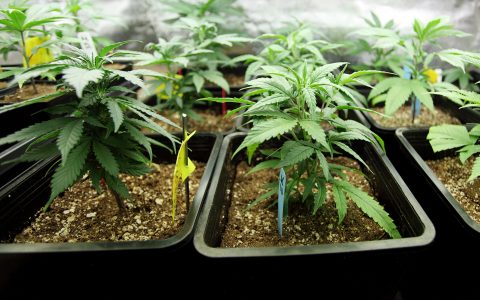CBD vs. THC: What’s the Difference?
What Are the Medical Benefits of CBD?
The list of conditions CBD may help with is ever-expanding. Here are some of the most common conditions and symptoms patients combat with CBD:
- Epilepsy and seizure disorders
- Pain and inflammation
- PTSD and anxiety
- Crohn’s disease
- Multiple sclerosis
- Opioid withdrawal
Though clinical and anecdotal evidence suggests CBD’s benefits in managing different conditions, it became most famous for treating a rare and debilitating form of pediatric epilepsy. Dravet’s Syndrome is notoriously resistant to current approved treatment methods. Sufferers are plagued by seizures, often up to hundreds a day, that worsen as they age and can be life-threatening. Currently, treatment methods include having the child wear an eyepatch, specialized diets, and brain surgery, but all have mixed success rates.

One of the earliest success stories involves a young girl named Charlotte who was given an ingestible oil derived from Charlotte’s Web, a CBD strain that was specifically developed to provide her with all the benefits of the drug without the high. In less than two years, Charlotte went from a monthly seizure count of 1,200 to about three. Other success stories followed and more parents have begun to speak out, particularly parents who are desperate for access to this life-saving treatment.
This video highlights Charlotte and her disorder, as well as the promising treatment of high-CBD strains to help alleviate her symptoms.
CBD has no lethal dose or known serious medical side effects, but it is still federally illegal. Furthermore, the idea of using cannabis-derived compounds for pediatric conditions remains a touchy subject in a culture where cannabis has been stigmatized.

Although THC is best known for its mind-altering euphoria, it too has important medical benefits. There’s some overlap in what CBD and THC can treat, but THC is particularly effective in relieving nausea, appetite loss, insomnia, among other symptoms. Many patients find that a balance of CBD and THC offers the best symptom relief as the two work together synergistically.
What Are Some High-CBD Strains I Can Try?
Keep in mind that CBD levels may vary from crop to crop—even from plant to plant. However, below are some strains that have been bred to contain higher CBD levels, so they might be a good place to start. Check the map on their strain page to see if these are sold at a dispensary near you. We also recommend checking with dispensaries about the specifics of their strains’ CBD levels. It’s always a good idea to purchase only lab-tested products that clearly state the CBD/THC levels so you know what kind of experience to expect.
Source: Leafly

Leave a Comment